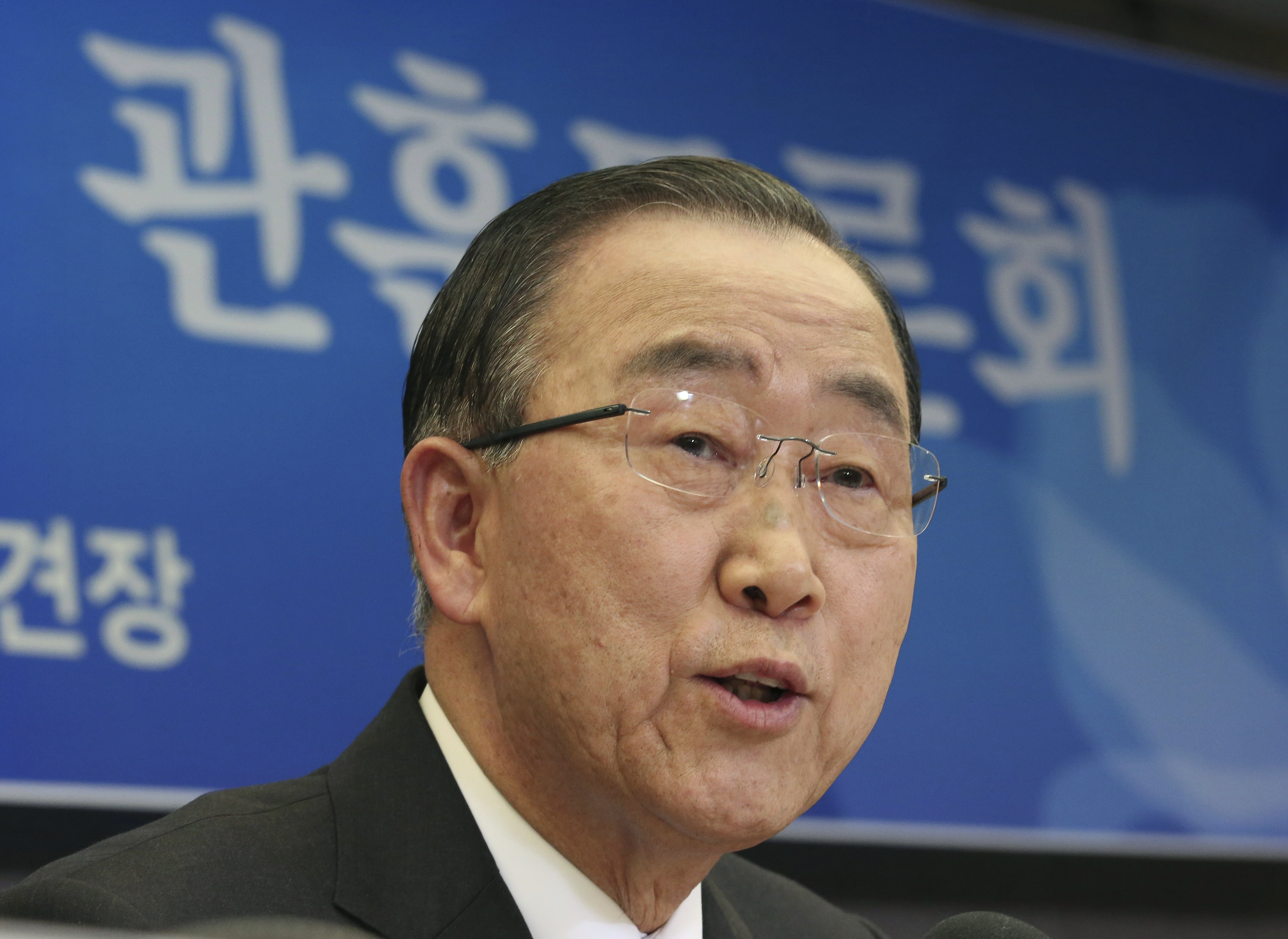
FILE – In this Jan. 25, 2017, file photo, former U.N. Secretary-General Ban Ki-moon speaks during a debate in Seoul, South Korea. Former United Nations secretary general Ban Ki-moon has been elected chair of the International Olympic Committee’s ethics commission. In his acceptance speech Thursday, Sept. 14, 2017, Ban called his new task “a serious responsibility.” (AP Photo/Ahn Young-joon, File)
LIMA, Peru — As soon as he got the job, the new ethics chair of the International Olympic Committee received an earful, as well.
Former U.N. secretary general Ban Ki-moon was elected to his new position Thursday — handed the task of restoring credibility to an organization that, according to its own members, is getting “hammered” by an onslaught of unsavory scandals.
In his acceptance speech, Ban called his new task “a serious responsibility.” After he was done, and the floor was opened for questions, IOC members took turns accentuating the challenge he faces.
“Quite frankly, we’re getting hammered every day … to the point where there’s a perception out there, not just from the media, but from average people who feel almost betrayed by what they see as continual acts of corruption by high people in international sports,” said Richard Peterkin, the IOC member from Saint Lucia.
This week’s IOC session was highlighted by the dual award of the 2024 and 2028 Olympics to Paris and Los Angeles. Sharing those headlines have been almost-daily developments about Brazilian IOC member Carlos Nuzman , who is under investigation for his alleged role in a $2 million vote-buying scheme to bring the 2016 Olympics to Rio de Janeiro.
Earlier this week, IOC president Thomas Bach said the committee was awaiting word from Brazilian authorities before determining next steps. There are IOC members, however, who think the committee should act more decisively.
“The trouble is, presuming innocence is fine, but how long does it take?” New Zealand IOC member Barry Maister said in an interview with The Associated Press shortly after he, too, expressed his frustration during the Q&A with Ban. “It takes an age, and in that time, we just get hammered. It makes it look like we’re pushing the issue under the carpet.”
Nuzman isn’t the only IOC member in trouble.
—Last month, Patrick Hickey resigned his spot on the IOC executive board, a year after being arrested in Brazil in a ticket-scalping investigation.
—Absent from this week’s meetings is IOC member Frankie Fredericks, who was previously removed from the committee’s inspection team for Paris and Los Angeles in the wake of allegations he was caught up in the vote scandal involving Nuzman.
—The former head of track and field’s governing body, Lamine Diack, is also involved in the vote-buying scandal; he resigned his IOC position in 2015.
—Another IOC member, Sheikh Ahmad Al Fahad Al Sabah of Kuwait, did not show this week. He has been implicated in a FIFA bribery case in the United States, and resigned from FIFA in April, but has not left his IOC post.
The IOC is seeking improvements in its ethics operation as part of Bach’s “Agenda 2020” reforms. Among the measures: establishing a new chief ethics and compliance officer’s position and creating a new ethics hotline that anyone can use to report violations both on and off the field of play.
“I think we’ve made it clear that credibility for us is extremely important,” Bach said. “Because credibility in sports doesn’t only apply to sports competition, but to sports organizations, as well. This is what we addressed expressly with Olympic Agenda 2020.”
But the changes take time, and meanwhile, the critical headlines keep coming.
“There comes a certain point when you’re taking all this (crap), and you have to come out of the bunker and say, ‘What are we not doing that’s affecting the credibility of the IOC?'” Canadian member Dick Pound said.
Maister said the combination of IOC members’ problems, along with the steady stream of medals being reallocated in an ongoing doping crisis, undermine fans’ confidence in sports.
“Where are we on a crisis scale? We’re not off the scale. I wouldn’t put a figure on it,” Maister said. “But these are issues that need to be addressed, for sure.”

